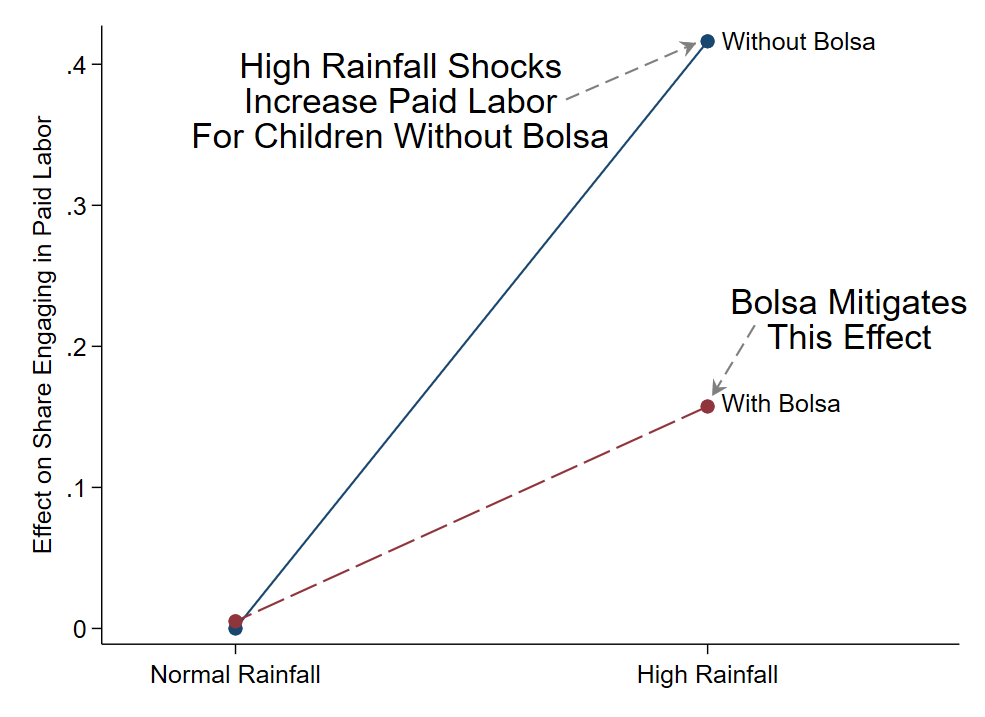School, Shocks, and Safety Nets: Can Conditional Cash Transfers Protect Human Capital Investments During Rainfall Shocks?
with Dylan Fitz
Published in Journal of Development Studies, 2021
Published version available here. Working paper version available here. BibTeX citation available here. A replication package is available here. The replication package relies on data provided by Brazil’s Ministério do Desenvolvimento Social e Combate a Fome and publicly available data found here.
Abstract: Short-run income shocks can negatively impact school attendance when children are pulled out in order to work, either based on the need for greater income during negative shocks or the increased opportunity cost of child time during positive shocks. This paper proxies for income shocks using fluctuations in local rainfall and evaluates its impact on child schooling, labour force participation, and domestic work. We then investigate whether conditional cash transfers are able to protect school attendance during these temporary shocks. Using data on Brazil’s Bolsa Família programme along with municipal-level rainfall data, we find that positive rainfall shocks cause children to increase the likelihood of paid labour but Bolsa partially mitigates these effects, though less so among boys and older children. Furthermore, we find evidence that even when children do not drop out of school during these shocks, Bolsa may not fully maintain their intensity of school attendance and shocks may hinder academic progress. These results suggest that higher wages cause children to substitute time away from schooling, but that Bolsa acts as a partial safety net that stabilises human capital investments during short-run shocks and may help produce larger long-run benefits.

